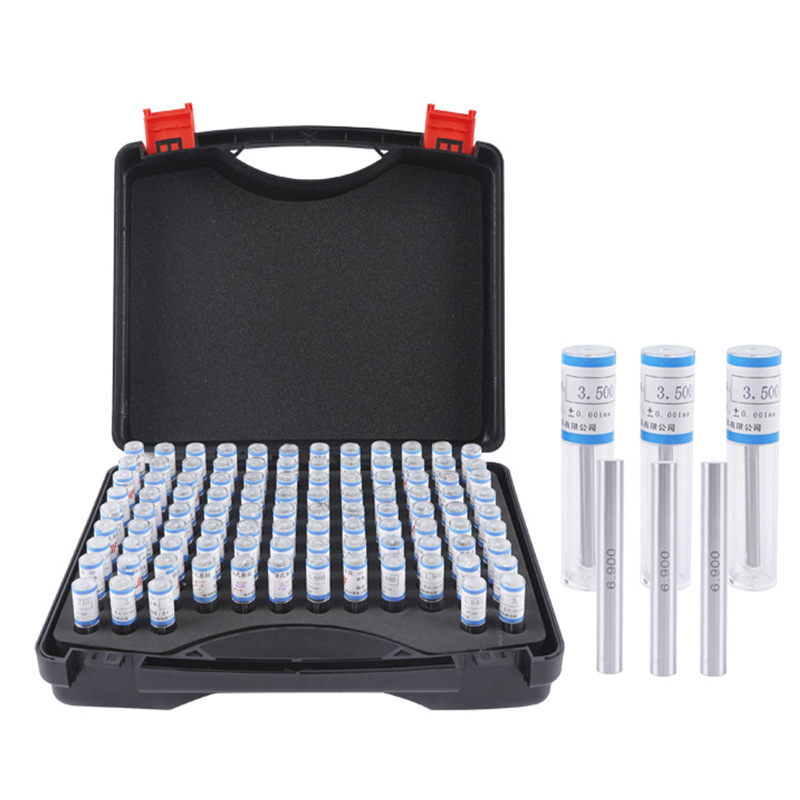ഡിസം . 20, 2024 05:11 Back to list
Different Types of Bore Gauges and Their Applications in Precision Measurement
Understanding the Types of Bore Gauges
Bore gauges are essential tools in the field of precision engineering and manufacturing. They are used to measure the internal diameters of cylindrical objects like pipes, tubes, and holes, ensuring that they meet specified tolerances and dimensions. Accurate measurements are crucial in various industries, including automotive, aviation, and heavy machinery, where even the slightest deviation can lead to performance issues or safety hazards. In this article, we will explore the different types of bore gauges, their applications, and how to select the right one based on specific needs.
1. Dial Bore Gauges
Dial bore gauges are among the most commonly used tools for measuring the internal diameters of holes. They consist of a probe with adjustable measuring points that expand and contract to fit into the bore. The measurements are displayed on a dial gauge, allowing for easy reading. Dial bore gauges are praised for their accuracy and ease of use, making them suitable for shop-floor measurements.
Applications - Ideal for checking the diameter of holes in engine cylinders and transmission cases. - Frequently used in quality control processes to ensure parts meet specifications.
Advantages - High precision, often within a few microns. - Simple setup and user-friendly interface.
2. Digital Bore Gauges
Digital bore gauges offer advanced features compared to traditional dial gauges. They provide digital readouts, which reduces the chances of reading errors significantly. Many modern digital bore gauges come equipped with data output capabilities, allowing users to connect the gauge to computers or data collection systems for enhanced data management and analysis.
Applications - Used in laboratories and production environments where data collection is paramount. - Suitable for measuring bores in tight tolerances or intricate components.
Advantages - Greater precision and reduced human error in reading measurements. - Versatility in data logging and reporting.
3
. Taper Gauge Bore GaugesTaper gauge bore gauges are designed to measure the taper of a bore, which is essential in applications where parts need to fit together precisely. These gauges have tapered measuring points that can slide into the bore, allowing users to assess taper and alignment effectively.
Applications - Common in machining processes where tapers are critical, such as in connecting rods or shafts. - Useful for inspecting the quality of machined parts before assembly.
types of bore gauge

Advantages - Ability to measure taper changes in dimensions. - Effective for ensuring proper alignment in assemblies.
4. Rigid Bore Gauges
Rigid bore gauges feature a fixed measuring length, which allows them to measure the diameter of a bore at a specific point. This type of bore gauge often includes a micrometer for fine adjustments, thus providing high accuracy in measurement.
Applications - Typically used in situations requiring high precision and repeatability. - Ideal for measuring large bores where flexibility may lead to measurement errors.
Advantages - Durable construction for longevity in industrial environments. - Consistent and repeatable measurements due to rigid design.
5. Flexible Bore Gauges
Unlike rigid bore gauges, flexible bore gauges are designed to conform to the shape of the bore they are measuring. These gauges consist of a thin, flexible shaft with a measuring tip that can adapt to various shapes and contours.
Applications - Best suited for measuring irregular or cylindrical shapes that would be difficult for rigid gauges. - Used in automotive applications where components have complex geometries.
Advantages - Ability to measure uniquely shaped or contoured bores. - Lightweight and easy to handle in confined spaces.
Choosing the Right Bore Gauge
Selecting the appropriate bore gauge depends on several factors, such as the size and shape of the bore, the level of precision required, and the working environment. For general-purpose measurements, a dial bore gauge might suffice, while tasks demanding high precision might necessitate a digital bore gauge. Additionally, understanding the specific characteristics of the bore, including any taper or irregularities, will help determine whether a flexible or rigid gauge is appropriate.
In conclusion, bore gauges play a critical role in the manufacturing and quality assurance process. By understanding the various types of bore gauges available, engineers and technicians can make informed decisions that enhance precision, efficiency, and ultimately, product quality. Whether it’s for measuring the simplest holes or the most complex geometries, having the right bore gauge at hand is essential for maintaining manufacturing standards and ensuring operational excellence.
-
Why Metric Trapezoidal Thread is Ideal for Precision Motion ControlNewsAug.05,2025
-
The Unique Properties of a Block of Granite for Industrial UseNewsAug.05,2025
-
The Role of Flanged Y Strainers in Preventing Pipeline ClogsNewsAug.05,2025
-
The Importance of Regular Calibration for Master Ring GagesNewsAug.05,2025
-
How a Cast Iron Surface Table Enhances Accuracy in ManufacturingNewsAug.05,2025
-
Comparing Different Check Valve Types for Optimal Flow ControlNewsAug.05,2025
Related PRODUCTS









